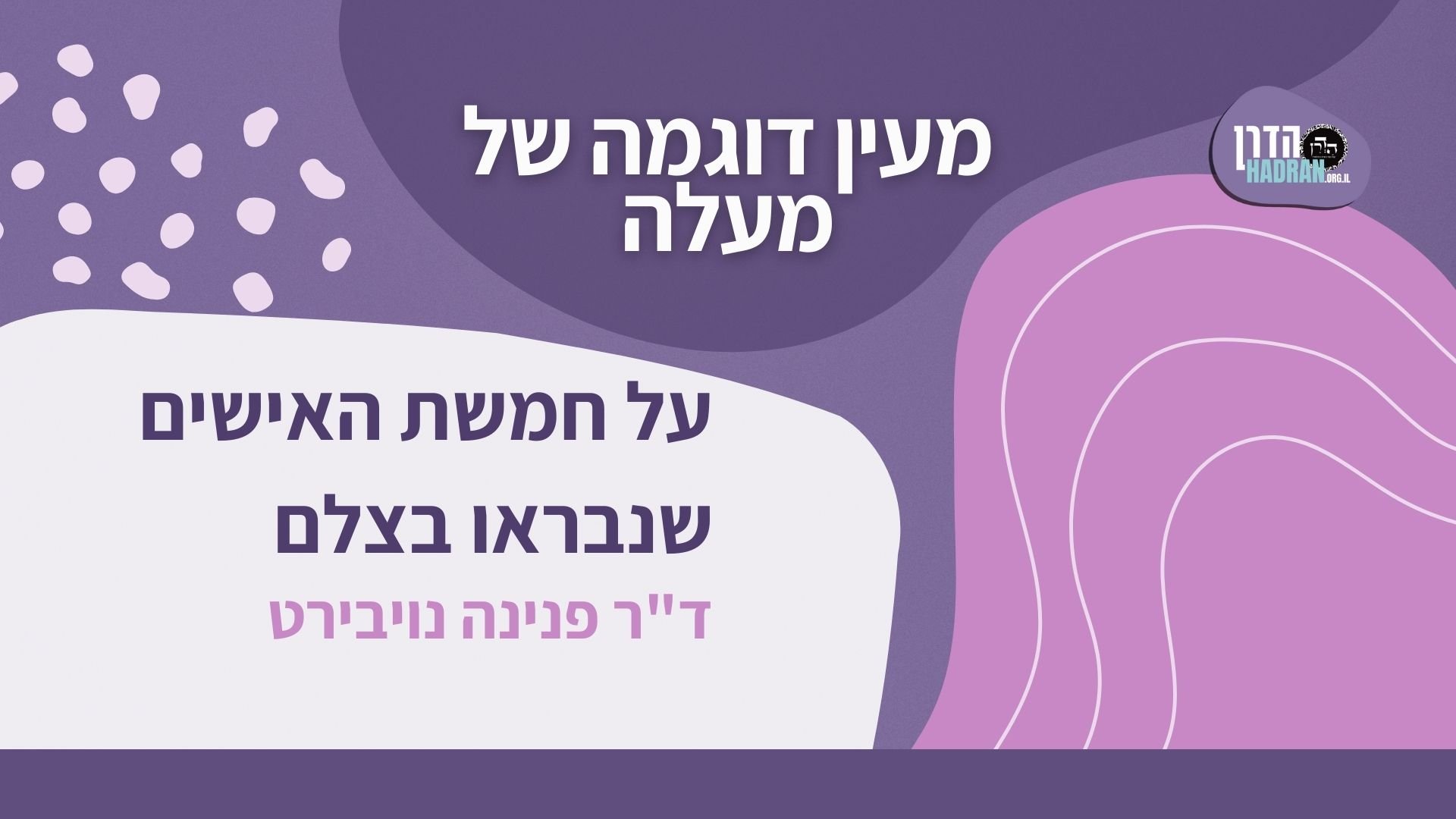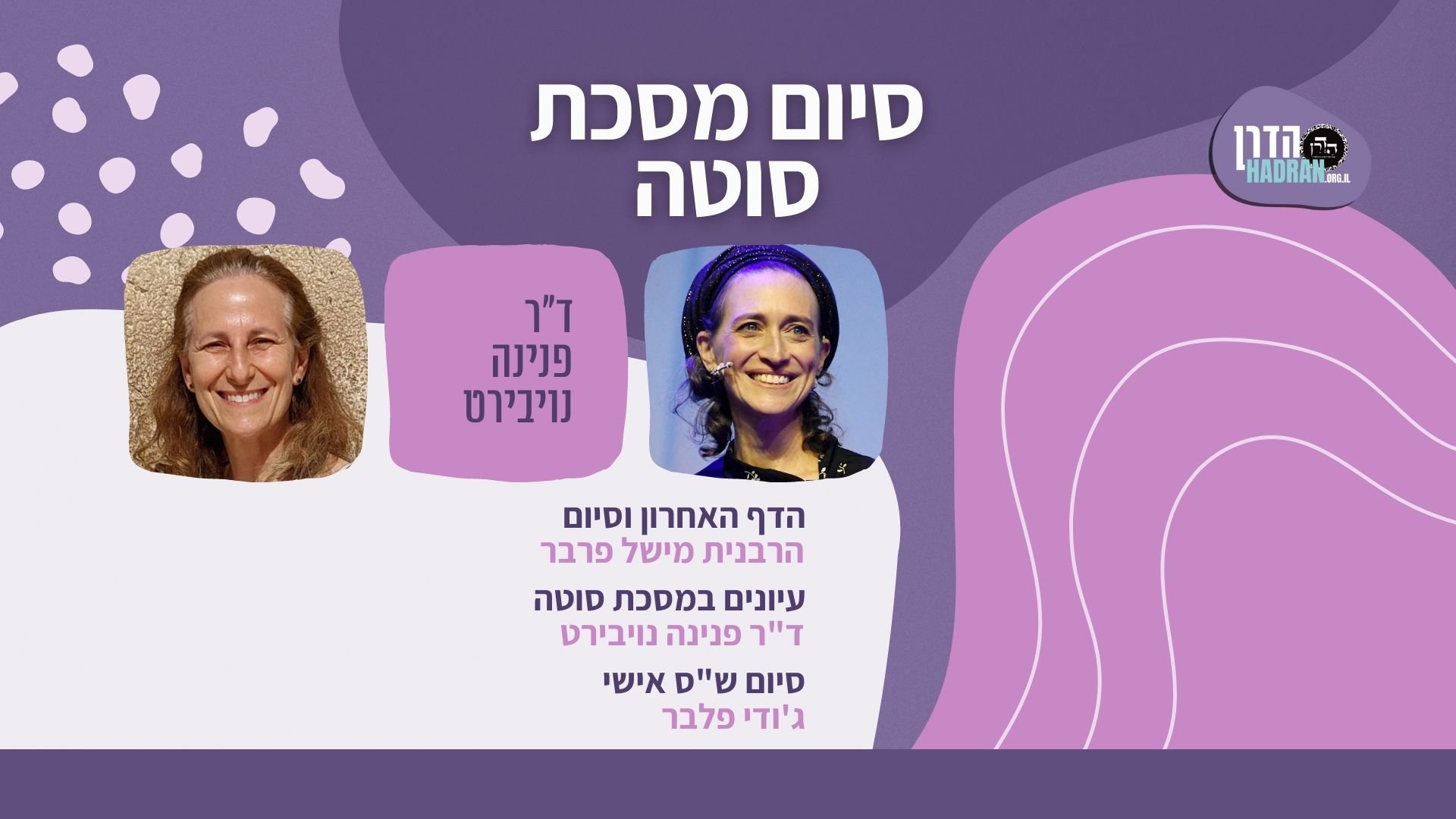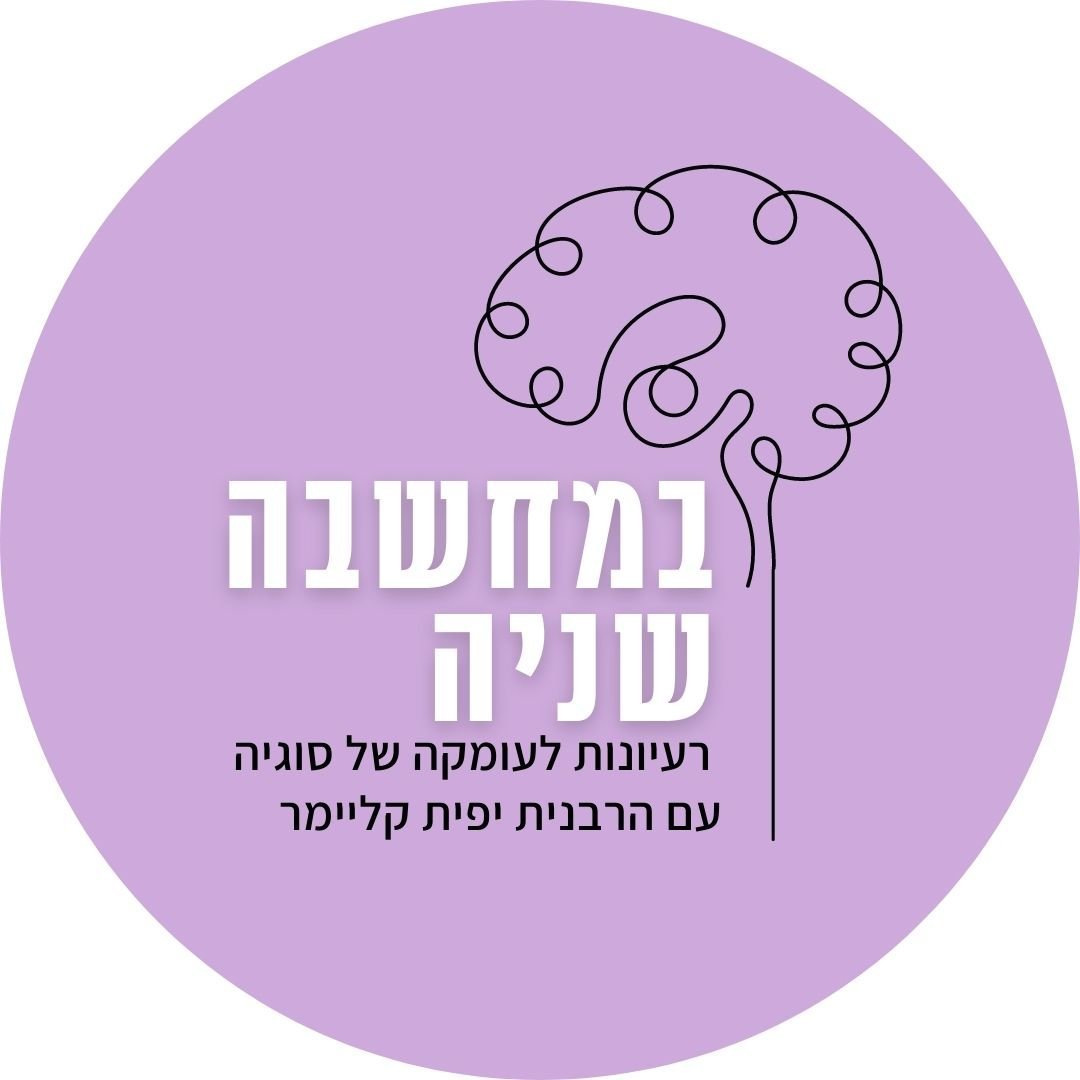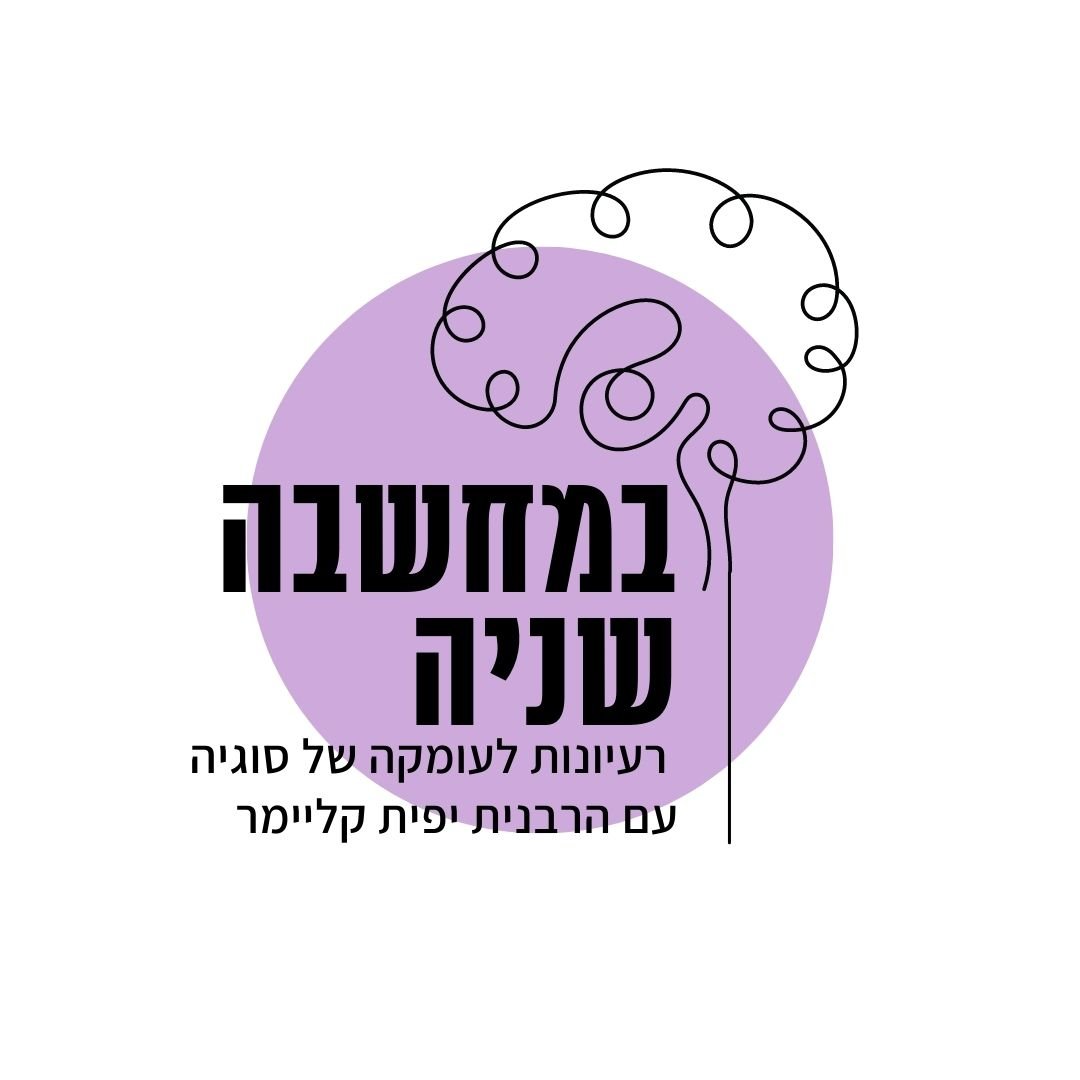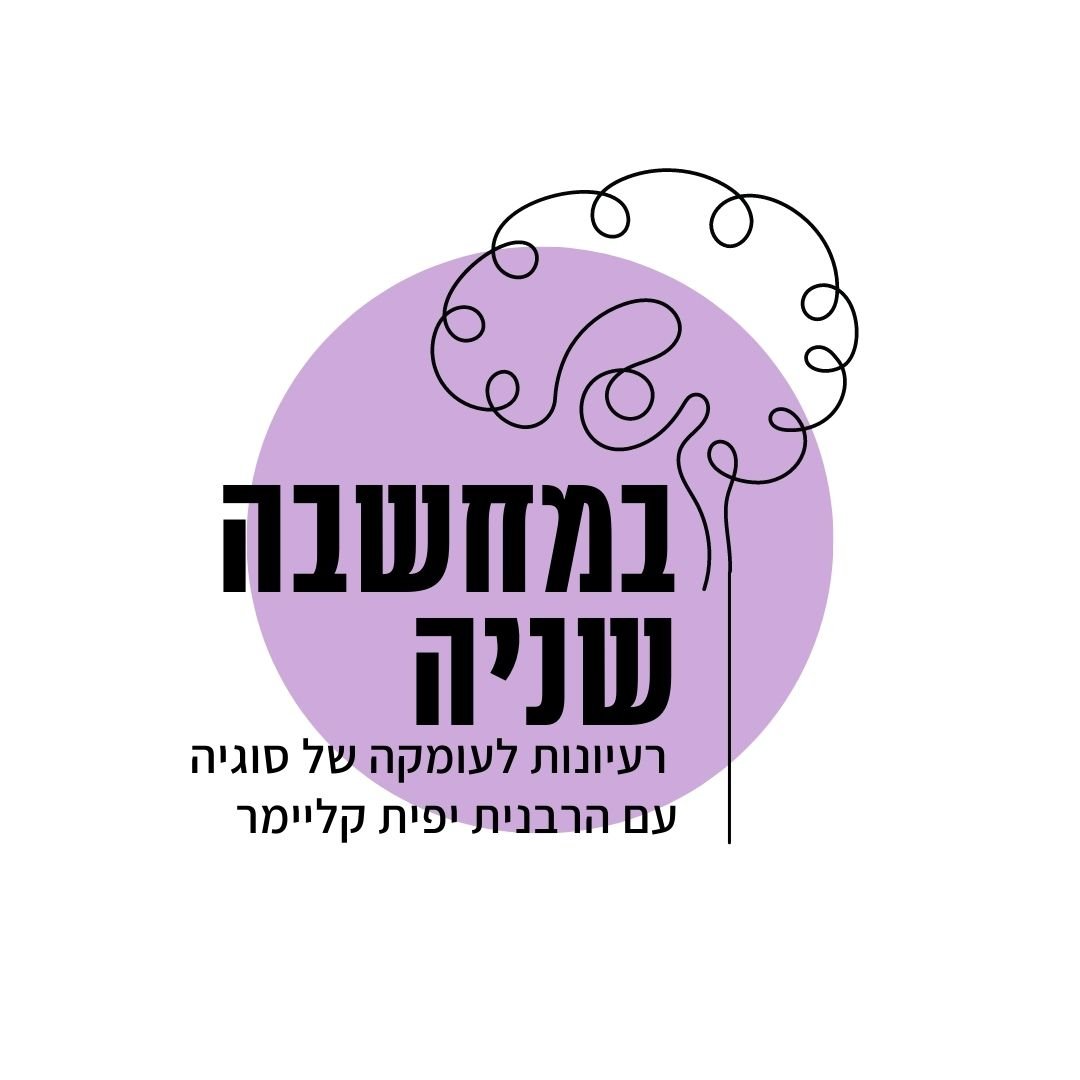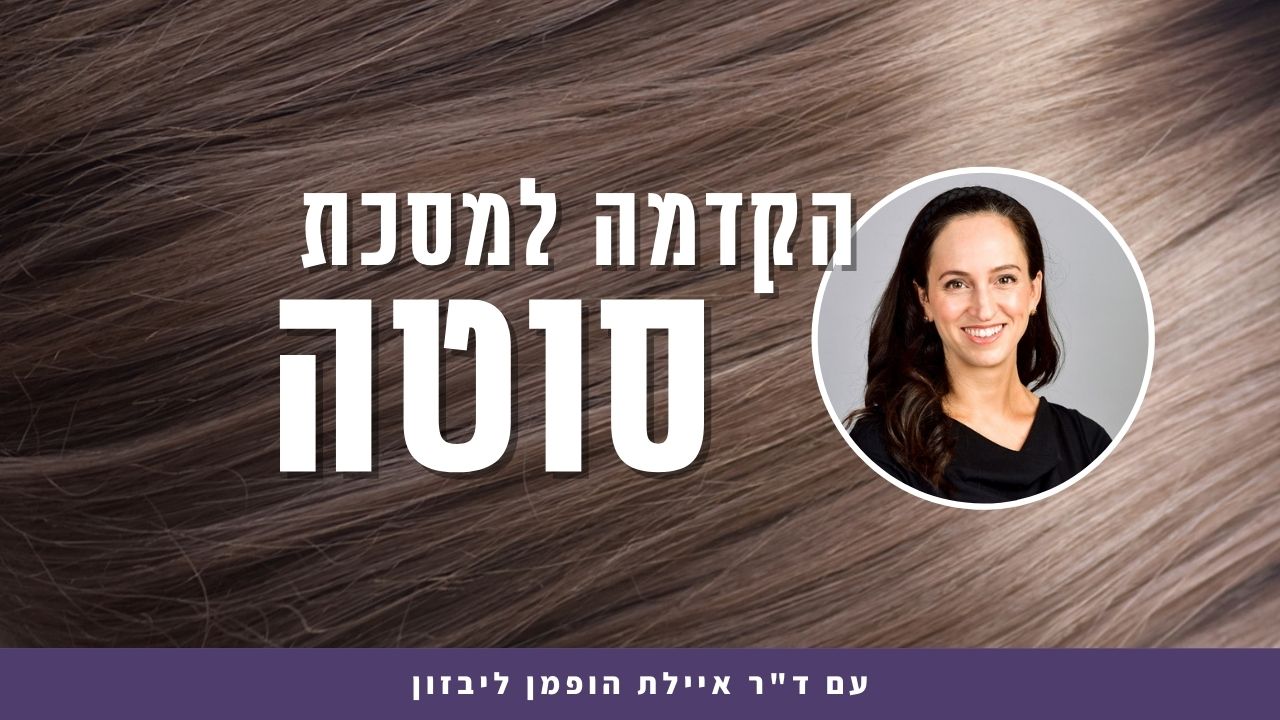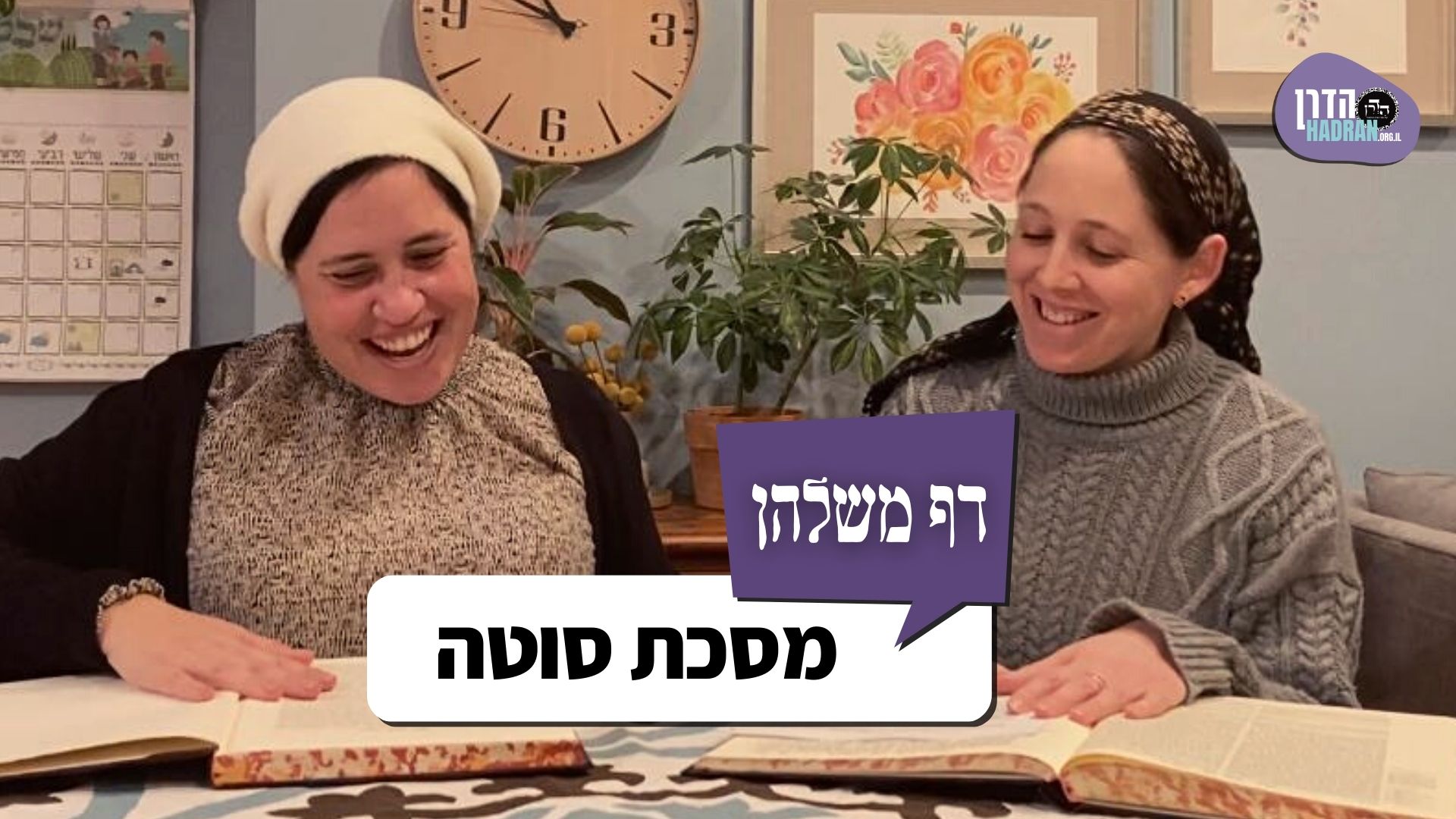סוטה כג
הָאוֹמֶרֶת ״טְמֵאָה אֲנִי לָךְ״, וְשֶׁבָּאוּ לָהּ עֵדִים שֶׁהִיא טְמֵאָה, וְהָאוֹמֶרֶת ״אֵינִי שׁוֹתָה״, וְשֶׁבַּעְלָהּ אֵינוֹ רוֹצֶה לְהַשְׁקוֹתָהּ, וְשֶׁבַּעְלָהּ בָּא עָלֶיהָ בַּדֶּרֶךְ,
A woman who confesses and says: I am defiled, and therefore prohibited to you; and a woman with regard to whom witnesses came and testified that she is defiled; and a woman who says: I will not drink the bitter water of a sota, even if she does not confess her guilt; and a woman whose husband changed his mind and does not want to force her to drink; and a woman whose husband engaged in sexual intercourse with her on the way to the Temple.
וְכׇל הַנְּשׂוּאוֹת לְכֹהֲנִים — מִנְחוֹתֵיהֶן נִשְׂרָפוֹת. בַּת יִשְׂרָאֵל שֶׁנִּשֵּׂאת לְכֹהֵן — מִנְחָתָהּ נִשְׂרֶפֶת, וְכֹהֶנֶת שֶׁנִּשֵּׂאת לְיִשְׂרָאֵל — מִנְחָתָהּ נֶאֱכֶלֶת.
And all the women who are married to priests, their meal-offerings are always burned, as the verse states: “And every meal-offering of a priest shall be completely burned; it shall not be eaten” (Leviticus 6:16). An Israelite woman who is married to a priest, her meal-offering is burned; and the daughter of a priest who is married to an Israelite, her meal-offering is eaten.
מָה בֵּין כֹּהֵן לְכֹהֶנֶת? מִנְחַת כֹּהֶנֶת נֶאֱכֶלֶת, וּמִנְחַת כֹּהֵן אֵינָהּ נֶאֱכֶלֶת. כֹּהֶנֶת מִתְחַלֶּלֶת, וְכֹהֵן אֵין מִתְחַלֵּל.
The mishna asks a general question: What are the differences between a priest and the daughter of a priest? The meal-offering of the daughter of a priest is eaten by the priests, but the meal-offering of a priest is not eaten. The daughter of a priest can become disqualified from marrying a priest and from partaking of teruma by engaging in sexual intercourse with someone forbidden to her, but a priest does not become desacralized by engaging in sexual intercourse with a woman forbidden to him.
כֹּהֶנֶת מִטַּמְּאָה לְמֵתִים, וְאֵין כֹּהֵן מִטַּמֵּא לְמֵתִים. כֹּהֵן אוֹכֵל בְּקׇדְשֵׁי קָדָשִׁים, וְאֵין כֹּהֶנֶת אוֹכֶלֶת בְּקׇדְשֵׁי קֳדָשִׁים.
The daughter of a priest may become impure with impurity imparted by a corpse, but a priest may not become impure with impurity imparted by a corpse except for the burial of his seven closest relatives. A priest may eat from offerings of the most sacred order, but the daughter of a priest may not eat from offerings of the most sacred order.
מָה בֵּין אִישׁ לְאִשָּׁה: הָאִישׁ פּוֹרֵעַ וּפוֹרֵם, וְאֵין הָאִשָּׁה פּוֹרַעַת וּפוֹרֶמֶת. הָאִישׁ מַדִּיר אֶת בְּנוֹ בְּנָזִיר, וְאֵין הָאִשָּׁה מַדֶּרֶת בְּנָהּ בְּנָזִיר. הָאִישׁ מְגַלֵּחַ עַל נְזִירוּת אָבִיו, וְאֵין הָאִשָּׁה מְגַלַּחַת עַל נְזִירוּת אָבִיהָ.
What are the halakhic differences between a man and a woman? A man lets his hair grow and rends his garments when he is a leper, but a woman does not let her hair grow or rend her garments when she is a leper. A man can vow that his minor son shall be a nazirite, obligating the son to remain a nazirite even during his adulthood, but a woman cannot vow that her son shall be a nazirite. A man can shave at the culmination of his naziriteship by using offerings originally designated for his father’s naziriteship, i.e., if one’s father was also a nazirite and he died having already designated offerings for the culmination of his naziriteship; but a woman cannot shave at the culmination of her naziriteship by using offerings designated for her father’s naziriteship.
הָאִישׁ מְקַדֵּשׁ אֶת בִּתּוֹ, וְאֵין הָאִשָּׁה מְקַדֶּשֶׁת אֶת בִּתָּהּ. הָאִישׁ מוֹכֵר אֶת בִּתּוֹ, וְאֵין הָאִשָּׁה מוֹכֶרֶת אֶת בִּתָּהּ. הָאִישׁ נִסְקָל עָרוֹם, וְאֵין הָאִשָּׁה נִסְקֶלֶת עֲרוּמָּה. הָאִישׁ נִתְלֶה, וְאֵין הָאִשָּׁה נִתְלֵית. הָאִישׁ נִמְכָּר בִּגְנֵיבָתוֹ, וְאֵין הָאִשָּׁה נִמְכֶּרֶת בִּגְנֵיבָתָהּ.
A man can betroth his daughter to another man while she is a minor, but a woman cannot betroth her daughter even while she is a minor. A man can sell his daughter as a maidservant while she is a minor, but a woman cannot sell her daughter as a maidservant even while she is a minor. A man is stoned naked, but a woman is not stoned naked. A man is hanged after he is stoned for certain transgressions, but a woman is not hanged. A man is sold for his committing an act of theft in order to pay his debt, but a woman is not sold for her committing an act of theft.
גְּמָ׳ תָּנוּ רַבָּנַן: כׇּל הַנְּשׂוּאוֹת לַכְּהוּנָּה מִנְחוֹתֵיהֶן נִשְׂרָפוֹת. כֵּיצַד? כֹּהֶנֶת לְוִיָּה וְיִשְׂרְאֵלִית שֶׁנִּשֵּׂאת לְכֹהֵן — אֵין מִנְחָתָהּ נֶאֱכֶלֶת, מִפְּנֵי שֶׁיֵּשׁ לוֹ חֵלֶק בָּהּ. וְאֵינָהּ עוֹלָה כָּלִיל — מִפְּנֵי שֶׁיֵּשׁ לָהּ חֵלֶק בָּהּ. אֶלָּא — הַקּוֹמֶץ קָרֵב בְּעַצְמוֹ, וְהַשִּׁירַיִם קְרֵיבִין בְּעַצְמָן.
GEMARA: The Sages taught (Tosefta 2:6): All the women who are married into the priesthood, their meal-offerings are burned. How so? With regard to the daughter of a priest, or the daughter of a Levite or an Israelite woman who is married to a priest, her meal-offering is not eaten due to the fact that her father or husband, respectively, has a share in the meal-offering, and it is therefore treated as the meal-offering of a priest, which is not eaten. But it is not completely burned without removing a handful from it, as the Torah states with regard to the meal-offering of a priest, due to the fact that she also has a share in it. Rather, the handful is sacrificed by itself, and the remainder of the meal-offering is sacrificed by itself.
אִיקְּרִי כָּאן: כֹּל שֶׁהוּא מִמֶּנּוּ לָאִישִּׁים — הֲרֵי הוּא בְּ״בַל תַּקְטִירוּ״! אָמַר יְהוּדָה בְּרֵיהּ דְּרַבִּי שִׁמְעוֹן בֶּן פַּזִּי: דְּמַסֵּיק לְהוּ לְשׁוּם עֵצִים, כְּרַבִּי אֱלִיעֶזֶר. דְּתַנְיָא, רַבִּי אֱלִיעֶזֶר אוֹמֵר: לְרֵיחַ נִיחוֹחַ אִי אַתָּה מַעֲלֶה, אֲבָל אַתָּה מַעֲלֵיהוּ לְשׁוּם עֵצִים.
The Gemara asks: One should apply here the principle that in the case of any offering that is meant to be partly burned on the flames of the altar, one who burns the remainder of the offering is subject to the prohibition: Do not burn. This prohibition is derived from the verse: “You shall not burn of it as an offering made by fire unto the Lord” (Leviticus 2:11). Yehuda, son of Rabbi Shimon ben Pazi, said that the priest burns the remainder not as an offering but for the purpose of firewood. This is permitted, in accordance with the opinion of Rabbi Eliezer, as it is taught in a baraita that Rabbi Eliezer says: With regard to those parts of an offering which may not be burned, for a pleasing aroma you may not burn them; however, you may burn them on the altar for the purpose of firewood.
הָנִיחָא לְרַבִּי אֱלִיעֶזֶר דְּאִית לֵיהּ הַאי סְבָרָא, אֶלָּא לְרַבָּנַן דְּלֵית לְהוּ הַאי סְבָרָא, מַאי אִיכָּא לְמֵימַר? דְּעָבְדִי לְהוּ כְּרַבִּי אֶלְעָזָר בְּרַבִּי שִׁמְעוֹן. דְּתַנְיָא, רַבִּי אֶלְעָזָר בְּרַבִּי שִׁמְעוֹן אוֹמֵר: הַקּוֹמֶץ קָרֵב בְּעַצְמוֹ, וְהַשִּׁירַיִם מִתְפַּזְּרִים עַל בֵּית הַדֶּשֶׁן.
The Gemara continues: This works out well according to the opinion of Rabbi Eliezer, who holds in accordance with this reasoning and permits burning the remainder of an offering as firewood; however, according to the Rabbis, who do not hold in accordance with this reasoning, what can be said? How is the remainder burned on the altar? The Gemara answers: With regard to the remainder, they act in accordance with the opinion of Rabbi Elazar, son of Rabbi Shimon, as it is taught in a baraita: Rabbi Elazar, son of Rabbi Shimon, says with regard to the meal-offering of a sinner who is a priest: The handful is removed from the meal-offering and sacrificed by itself, and the remainder is neither eaten nor burned on the altar; rather, it is scattered on the place of the ashes.
וַאֲפִילּוּ רַבָּנַן לָא פְּלִיגִי עֲלֵיהּ דְּרַבִּי אֶלְעָזָר בְּרַבִּי שִׁמְעוֹן אֶלָּא בְּמִנְחַת חוֹטֵא שֶׁל כֹּהֲנִים, דְּבַת הַקְרָבָה הִיא. אֲבָל בְּהָא, אֲפִילּוּ רַבָּנַן מוֹדוּ.
And even the Rabbis do not disagree with Rabbi Elazar, son of Rabbi Shimon, except with regard to the meal-offering of a sinner who is a priest, as they hold that it is fit to be sacrificed in its entirety without removing a handful. However, in this case, i.e., in the case of the meal-offering of a sota who is married to a priest, even the Rabbis agree that its remainder is scattered on the place of the ashes, since the handful is removed from the offering.
בַּת יִשְׂרָאֵל הַנְּשׂוּאָה וְכוּ׳. מַאי טַעְמָא — דְּאָמַר קְרָא: ״וְכׇל מִנְחַת כֹּהֵן כָּלִיל תִּהְיֶה לֹא תֵאָכֵל״. כֹּהֵן וְלֹא כֹּהֶנֶת.
§ The mishna states: In the case of an Israelite woman who is married to a priest, her meal-offering is burned; and in the case of the daughter of a priest who is married to an Israelite, her meal-offering is eaten. The Gemara asks: What is the reason for this? This is as the verse states: “And every meal-offering of a priest shall be completely burned; it shall not be eaten” (Leviticus 6:16). One can infer that this applies to a priest, but not to the daughter of a priest.
כֹּהֶנֶת מִתְחַלֶּלֶת, כֹּהֵן אֵין מִתְחַלֵּל. מְנָלַן — דְּאָמַר קְרָא: ״וְלֹא יְחַלֵּל זַרְעוֹ בְּעַמָּיו״. זַרְעוֹ מִתְחַלֵּל, וְהוּא אֵינוֹ מִתְחַלֵּל.
The mishna states: The daughter of a priest can become disqualified from marrying a priest and from partaking of teruma by engaging in sexual intercourse with someone forbidden to her, but a priest does not become desacralized by engaging in sexual intercourse with a woman forbidden to him. The Gemara asks: From where do we derive this? It is as the verse states with regard to a priest who marries a woman forbidden to him: “And he shall not disqualify his offspring among his people” (Leviticus 21:15), indicating that his offspring from forbidden intercourse are desacralized, but he is not personally desacralized through his actions.
כֹּהֶנֶת מִטַּמְּאָה כּוּ׳. מַאי טַעְמָא — אָמַר קְרָא: ״אֱמֹר אֶל הַכֹּהֲנִים בְּנֵי אַהֲרֹן״. בְּנֵי אַהֲרֹן וְלֹא בְּנוֹת אַהֲרֹן.
The mishna states: A daughter of a priest may become impure with impurity imparted by a corpse, but a priest may not. The Gemara asks: What is the reason for this? The Gemara answers: The verse states: “Speak to the priests, the sons of Aaron, and say to them: None shall become impure for the dead among his people” (Leviticus 21:1). The verse indicates that this applies to the sons of Aaron and not to the daughters of Aaron.
כֹּהֵן אוֹכֵל בְּקׇדְשֵׁי קֳדָשִׁים, דִּכְתִיב: ״כׇּל זָכָר בִּבְנֵי אַהֲרֹן יֹאכֲלֶנָּה״.
The mishna states: A priest may eat from offerings of the most sacred order, but a daughter of a priest may not eat from offerings of the most sacred order. The Gemara explains: This is derived as it is written with regard to the meal-offering, which is an offering of the most sacred order: “Every male among the children of Aaron may eat of it” (Leviticus 6:11).
וּמָה בֵּין אִישׁ כּוּ׳. תָּנוּ רַבָּנַן: ״אִישׁ״ — אֵין לִי אֶלָּא אִישׁ. אִשָּׁה מִנַּיִן? כְּשֶׁהוּא אוֹמֵר ״וְהַצָּרוּעַ אֲשֶׁר בּוֹ״ — הֲרֵי כָּאן שְׁנַיִם,
§ The mishna states: And what are the halakhic differences between a man and a woman? A man lets his hair grow and rends his garments when he is a leper, but a woman does not. The Sages taught: The verse states: “He is a leprous man, he is impure” (Leviticus 13:44). I have derived only that the halakhot of a confirmed leper apply to a man; from where do I derive that they apply to a woman? When it says in the subsequent verse: “And the leper in whom the plague is, his clothes shall be rent, and the hair of his head shall grow wild and he shall cover his upper lip; and he shall cry: Impure, impure” (Leviticus 13:45), there are two individuals indicated here, as this verse did not need to restate “and the leper,” as the subject of the verse was clear from the previous verse.
אִם כֵּן, מָה תַּלְמוּד לוֹמַר ״אִישׁ״ — לָעִנְיָן שֶׁלְּמַטָּה, אִישׁ פּוֹרֵעַ וְכוּ׳.
If so, what is the meaning when the verse states: A leprous “man”? This is referring to the matter of rending one’s clothes and letting one’s hair grow wild, which is stated in the verse below, and teaches that a man lets the hair of his head grow and rends his garments, but a woman does not.
הָאִישׁ מַדִּיר אֶת בְּנוֹ בְּנָזִיר, וְאֵין הָאִשָּׁה מַדֶּרֶת בְּנָהּ בְּנָזִיר. אָמַר רַבִּי יוֹחָנָן, הֲלָכָה הִיא בְּנָזִיר: הָאִישׁ מְגַלֵּחַ עַל נְזִירוּת אָבִיו, וְאֵין הָאִשָּׁה מְגַלַּחַת עַל נְזִירוּת אָבִיהָ. אָמַר רַבִּי יוֹחָנָן: הֲלָכָה הִיא בְּנָזִיר.
The mishna states: A man can vow that his minor son shall be a nazirite, but a woman cannot vow that her son shall be a nazirite. Rabbi Yoḥanan says: This is a halakha transmitted orally to Moses from Sinai with regard to the nazirite, and it is not derived from the Bible. The mishna states: A man can shave at the culmination of his naziriteship by using offerings designated for his father’s naziriteship, but a woman cannot shave by using offerings designated for her father’s naziriteship. Rabbi Yoḥanan says: This is a halakha transmitted orally to Moses from Sinai with regard to the nazirite, and it is not derived from the Bible.
הָאִישׁ מְקַדֵּשׁ אֶת בִּתּוֹ, וְאֵין הָאִשָּׁה מְקַדֶּשֶׁת אֶת בִּתָּהּ — דִּכְתִיב: ״אֶת בִּתִּי נָתַתִּי לָאִישׁ הַזֶּה״. הָאִישׁ מוֹכֵר אֶת בִּתּוֹ, וְאֵין הָאִשָּׁה מוֹכֶרֶת אֶת בִּתָּהּ — דִּכְתִיב: ״וְכִי יִמְכּוֹר אִישׁ אֶת בִּתּוֹ״.
The mishna states: A man can betroth his daughter to another man while she is a minor, but a woman cannot betroth her daughter. The Gemara explains: This is as it is written: “And the father of the maiden shall say to the elders: I gave my daughter to this man as a wife” (Deuteronomy 22:16), indicating that it is only the father who has the power to betroth his daughter. The mishna states: A man can sell his daughter as a maidservant but a woman cannot sell her daughter. The Gemara explains: This is derived as it is written: “And if a man sells his daughter to be a maidservant” (Exodus 21:7), indicating that only a man can sell his daughter, while a woman cannot.
הָאִישׁ נִסְקָל עָרוֹם כּוּ׳. מַאי טַעְמָא — ״וְרָגְמוּ אוֹתוֹ״. מַאי ״אוֹתוֹ״? אִילֵּימָא אוֹתוֹ וְלֹא אוֹתָהּ, וְהָכְתִיב ״וְהוֹצֵאתָ אֶת הָאִישׁ הַהוּא אוֹ אֶת הָאִשָּׁה הַהִיא״! אֶלָּא: אוֹתוֹ בְּלֹא כְּסוּתוֹ, וְלֹא אוֹתָהּ בְּלֹא כְּסוּתָהּ.
§ The mishna states: A man is stoned naked, but a woman is not stoned naked. The Gemara asks: What is the reason for this? The Gemara answers: The verse states: “And let the entire congregation stone him” (Leviticus 24:14). What does the term “him” come to exclude? If we say this means that they stone him but not her, i.e., that a woman is not stoned at all, but isn’t it written: “And you shall take out that man or that woman, who did this evil thing, to your gates, that man or that woman; and you shall stone them with stones, and they shall die” (Deuteronomy 17:5). Rather, the term “him” excludes his garment, indicating that he is stoned without his garment. And a woman is excluded from this halakha, as one may infer from the term “him” that they do not stone her without her garment.
הָאִישׁ נִתְלֶה וְאֵין כּוּ׳. מַאי טַעְמָא — אָמַר קְרָא: ״וְתָלִיתָ אוֹתוֹ עַל עֵץ״, אוֹתוֹ וְלֹא אוֹתָהּ.
The mishna states: A man is hanged, but a woman is not hanged. The Gemara asks: What is the reason for this? The verse states: “And if a man has committed a sin worthy of death, and he is put to death, and you shall hang him on a tree” (Deuteronomy 21:22). The verse indicates that one should hang “him,” a man, but not her, a woman.
הָאִישׁ נִמְכָּר בִּגְנֵיבָתוֹ, וְאֵין הָאִשָּׁה נִמְכֶּרֶת בִּגְנֵיבָתָהּ. מַאי טַעְמָא, אָמַר קְרָא: ״וְנִמְכַּר בִּגְנֵיבָתוֹ״, בִּגְנֵיבָתוֹ וְלֹא בִּגְנֵיבָתָהּ.
The mishna states: A man is sold for his committing an act of theft, but a woman is not sold for her committing an act of theft. The Gemara asks: What is the reason for this? The verse states: “If the sun rose upon him, there is blood-guilt for him; he shall make restitution; if he has nothing, then he shall be sold for his theft” (Exodus 22:2). The verse indicates that he is sold for his theft, but she is not sold for her theft.
הֲדַרַן עֲלָךְ הָיָה נוֹטֵל
אֲרוּסָה וְשׁוֹמֶרֶת יָבָם — לֹא שׁוֹתוֹת וְלֹא נוֹטְלוֹת כְּתוּבָה, שֶׁנֶּאֱמַר: ״אֲשֶׁר תִּשְׂטֶה אִשָּׁה תַּחַת אִישָׁהּ״, פְּרָט לַאֲרוּסָה וְשׁוֹמֶרֶת יָבָם.
MISHNA: With regard to a betrothed woman who secluded herself with another man after being warned by her betrothed, and a widow waiting for her brother-in-law [yavam] to perform levirate marriage who secluded herself with another man after being warned by her yavam, they neither drink the bitter water nor collect payment of their marriage contracts. The reason they are not entitled to payment of their marriage contracts is that the betrothed woman became forbidden to her betrothed or the widow became forbidden to her yavam due to her own actions of entering into seclusion with the paramour. And the fact that they do not drink the bitter water is as it is stated: “This is the law of jealousy, when a wife, while under her husband, goes astray, and is defiled” (Numbers 5:29). The verse excludes a betrothed woman and a widow awaiting her yavam; since they are not yet married, neither is considered as “under her husband.”
אַלְמָנָה לְכֹהֵן גָּדוֹל, גְּרוּשָׁה וַחֲלוּצָה לְכֹהֵן הֶדְיוֹט, מַמְזֶרֶת
The mishna delineates cases where the woman’s marriage was prohibited in the first place: With regard to a widow who was married to a High Priest, or a divorcée or ḥalutza who was married to a common priest, or a mamzeret

